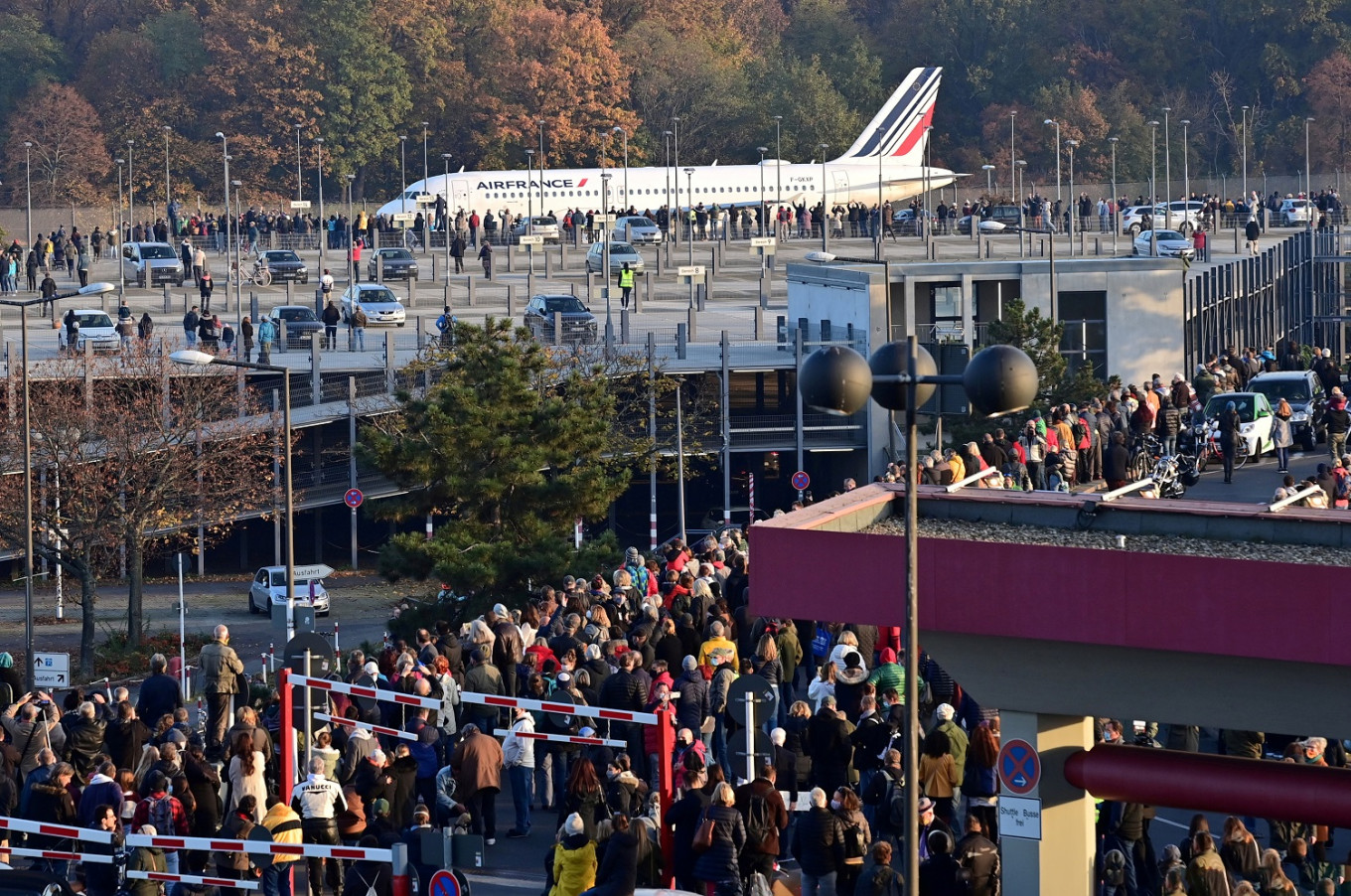Germany mulls cutting international air traffic 'to almost zero'
The emergence of new virus variants in Britain and South Africa, deemed more infectious than the original strain, has fuelled concern at a time when many nations are struggling to rein in the pandemic.
Change Size
 Spectators watch an Air France plane bound for Paris' Charles de Gaulle (CDG) Airport driving to the runway before the last take-off from Berlin Tegel Airport, in Berlin, Germany, on November 8, 2020. (Pool via REUTERS/John Macdougall)
Spectators watch an Air France plane bound for Paris' Charles de Gaulle (CDG) Airport driving to the runway before the last take-off from Berlin Tegel Airport, in Berlin, Germany, on November 8, 2020. (Pool via REUTERS/John Macdougall)
G
ermany is considering almost completely halting flights into the country to slow the spread of more infectious strains of the coronavirus, Interior Minister Horst Seehofer said Tuesday.
"The danger from the numerous virus mutations forces us to consider drastic measures," Seehofer told the Bild newspaper.
"That includes significantly stricter border checks, especially at the borders of high-risk areas, but also reducing air travel to Germany to almost zero, as Israel is currently doing," he added.
The emergence of new virus variants in Britain and South Africa, deemed more infectious than the original strain, has fuelled concern at a time when many nations are struggling to rein in the pandemic.
A slower-than-expected rollout of vaccines in the European Union has added to the worries.
Chancellor Angela Merkel, addressing a meeting of lawmakers from her conservative CDU/CSU bloc, said citizens had a right to expect that the government would take "certain precautions at the border", participants told AFP.
"Everyone understands that now is not the time to travel," she was quoted as saying.
Although Germany coped relatively well with the first coronavirus wave last spring, it has been hit hard by a second wave in recent months.
The country renewed restrictions in November, shutting down bars, restaurants, culture and leisure facilities. Measures were tightened further in December, with schools and non-essential shops also ordered to close.
The current shutdowns are set to last at least until mid-February.
Hospital quarantine
Travellers arriving in Germany from countries where the new variants have been detected are currently required to provide a recent negative test upon arrival, which has led to long queues at the German-Czech border.
"The people in Germany who accept the tough restrictions expect us to protect them as best we can from an explosion in infection numbers," Seehofer told Bild.
Germany has recorded over two million Covid-19 cases since the start of the pandemic and more than 52,000 deaths.
A hospital in the Bavarian city of Bayreuth on Tuesday said it was placing around 3,000 staff under "commuter quarantine" -- meaning they can only travel between work and home -- after detecting cases linked to the British variant.
A total of 99 employees have tested positive for the coronavirus and sequencing tests are now under way to determine which strain they have caught.
The hospital is closed to new patients except for emergency cases.
A Berlin hospital is also in similar quarantine over a cluster of cases linked to the UK strain.






